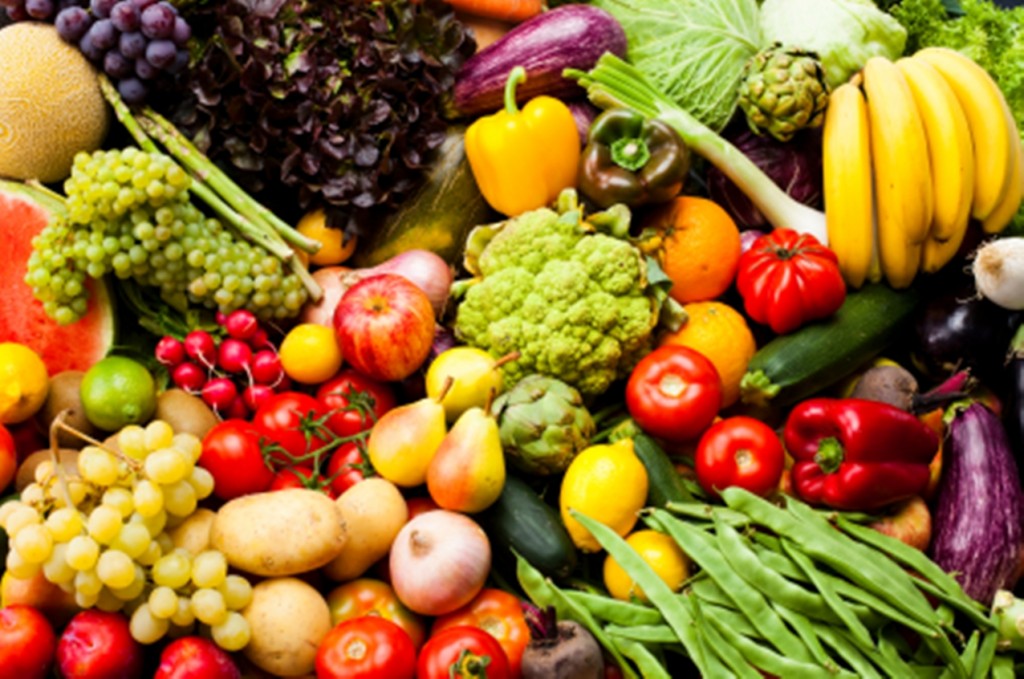You hear all the time that you should eat your fruits and vegetables. That they contain important minerals and vitamins essential for good health. So, you probably feel that you’re doing something good when you sit down to your daily salad and whatever other vegetables you can cram into yourself and/or your family members. And you are. Don’t get me wrong! But you might be surprised to know how nutritionally deficient much of the produce we have available to us really is today.
According to the American Food Pyramid, adults need roughly 3 cups of vegetables and 2 cups of fruit per day for optimal health. But I personally feel that this number should be higher because I don’t believe that a couple cups of today’s produce can provide us with all of the minerals we need.
One study conducted by a research team out of the University of Texas discovered that six out of thirteen nutrients in a sampling of 43 different fruits and vegetables were significantly depleted between 1950 and 2000.
In 1950, broccoli contained an average of 12.9 milligrams of calcium per gram, but in 2003, broccoli was shown to contain only 4.4 milligrams of calcium.
Why?
The soil is depleted. Farm lands have become severely depleted of minerals. Even many organic farms have soil that has been over-farmed to the point where the food that’s grown in that dirt is not as nutritionally dense as you might expect it to be.
The soil simply isn’t healthy anymore. With the GMOs, the pesticides and fungicides . . . we’re lucky if the fruits and vegetables that get harvested today have any nutrition in them at all by the time they get put on store shelves.
But there’s another thing.
Travel Time. Produce loses nutritional value at a steady rate after it’s been harvested. When you’re eating fruits and vegetables that have been shipped from across the country, how much nutritional value do you suppose it has by the time it reaches your table?
So how do you get all of the nutrition you need?
Here are a couple of ideas for you.
• Eat a lot of organically grown fruits and vegetables and consider supplementing with a daily multivitamin.
• Start growing your own food and ensure that the soil you use is properly nourished with organic compost matter and safe fertilizers.
• Preserve the nutrients that are in your produce by cooking them properly. Heat can destroy 30% or more of the nutrients in raw fruits and vegetables so don’t overcook them. Steam or saute your vegetables to prevent nutrient loss or, better yet, enjoy your produce raw. There are a couple of exceptions to this rule. When you cook spinach, tomatoes and carrots (not overcooked into a pile of mush, mind you), you actually increase the amount of available antioxidants found in the foods in their raw state.
• Choose fresh or frozen over canned. Canned food has little nutritional value left after all of the processing it has undergone to get to you. Frozen food, however, is generally frozen immediately after being picked and it is possibly more nutritious than the food you get fresh at the grocery store if it’s been shipped to you from halfway around the world, being exposed to all kinds of heat, light, air and who knows what!
So what’s the moral of the story?
Even if you think you’re eating enough produce, chances are you’re not. I’ve written articles in the past that will help you get more veggies into your diet. This might be a good time to reflect on one such article! Read it here.
Another great way to get more veggies into your diet is by having a smoothie each day using our Just Juiced Veggies!
